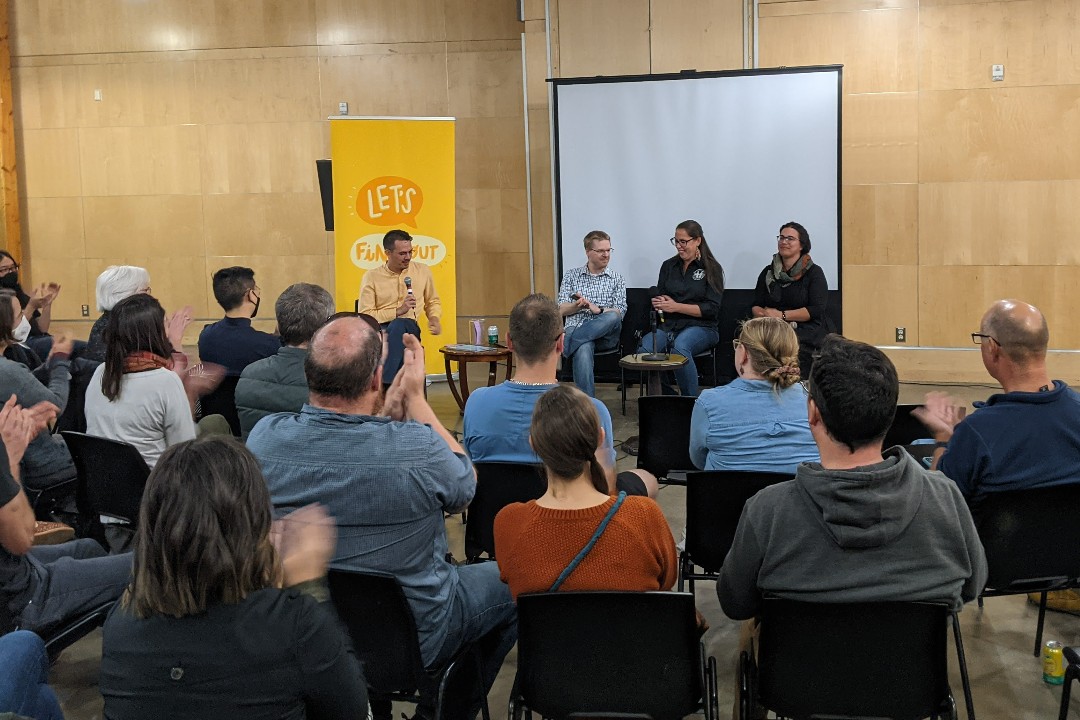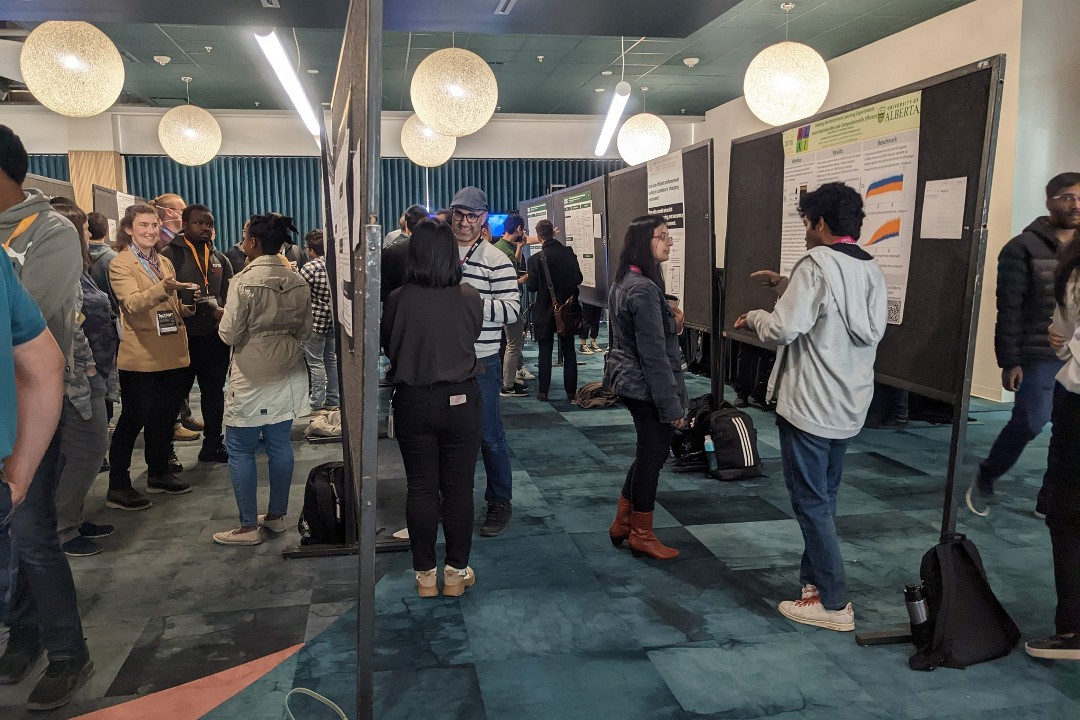
Urban national park in Edmonton seen as opportunity for reconciliation
The proposed national urban park in Edmonton's river valley needs to be developed with reconciliation in mind, says the Confederacy of Treaty Six First Nations.
"I think that the federal government, like many Canadians, is figuring out what reconciliation actually means," Miranda Jimmy, the confederacy's project coordinator for the national urban park initiative, told a special live taping of Let's Find Out.
The curiosity-driven history podcast wrapped up its season about Edmonton parks with a live show at the Alfred H. Savage Centre on Sept. 21. The night began with a presentation by bison conservation historian Lauren Markewicz, who explained how the creation of national parks often resulted in the displacement and erasure of Indigenous people under the guise of protecting wildlife.
Her talk was followed by a panel discussion about the national urban park initiative proposed for the river valley, of which the City of Edmonton is in the planning phase.
Reconciliation is one of three main priorities the federal government has laid out in the national urban park initiative.
"Historically, Indigenous people have not been part of the equation in the development of national parks. In fact, it's been detrimental — forced removal, forced relocation, removal of harvesting rights, ceremonial sites," Jimmy said, adding that the current government seems to be approaching national urban parks differently, and the cities that were shortlisted for the parks had demonstrated strong relationships to First Nations.
"Edmonton, from what I've been told, was chosen because the City of Edmonton has an existing memorandum of understanding with both the Confederacy of Treaty Six and the Métis Nation of Alberta," she said. "And so those provided a groundwork for the municipality to bring in Indigenous partners in a good way at the ground level."
But 18 months into the process, consultation is only just beginning, said Jimmy, who was hired in August. She said the chiefs of the confederacy's 16 member nations had yet not been briefed on the initiative and engagement with their communities had not yet taken place.






